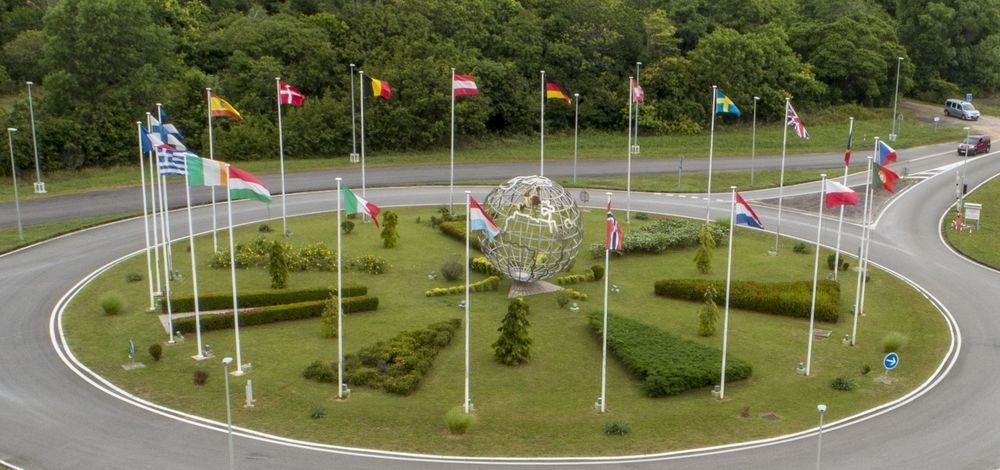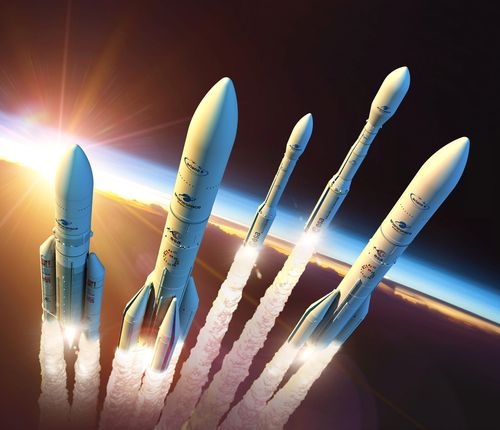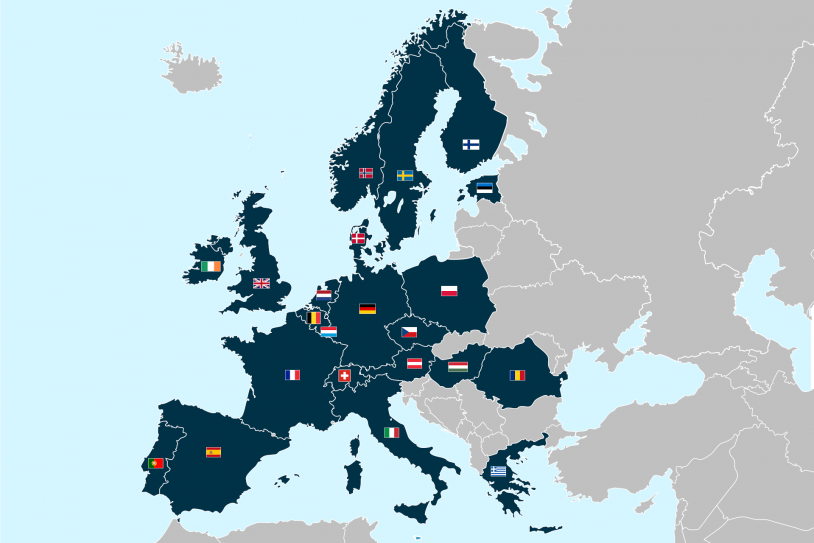ESA

Established in 1975, the European Space Agency (ESA) is an intergovernmental organisation with 22 Member States. It promotes Europe's scientific and industrial interests in space.
ESA in the European space sector
Since its creation, ESA’s mission has been to develop Europe's space capabilities and to ensure that investments in space benefit the citizens of Europe and the world.
Funding space spending
ESA Member States fund 50 % of total public space spending in Europe.
ESA spends about 85 % of its budget on contracts with European industry. ESA entrusts spacecraft research and development to universities, institutes and manufacturers in the Member States, after selection through calls for tenders, by applying the principle of geographical return. The Agency’s expenditure in each country is in proportion to their contribution to the Agency’s budget.
ESA is responsible for the research and development activities required for space projects. After qualification, responsibility for the projects is transferred to external entities that take care of production and operation. ESA has thus founded entities such as Arianespace for launch services.
Developing European launchers and programmes
By coordinating the financial and intellectual resources of its Member States, ESA can undertake programmes that go far beyond what any one country could achieve on its own.
Some of the European space programmes launched from the CSG :
- BepiColombo, a probe exploring the planet Mercury
- MetOp, a satellite that provides weather forecasts
- Aeolus, which transmits wind profiles
- Galileo, a constellation of satellites providing a navigation system
- Sentinel, a family of satellites that monitor the Earth's environment
- Gaia, which measures and maps celestial objects
- Rosetta, which landed on a comet to study it
Learn more about ESA's missions.
ESA is responsible for building the Ariane and Vega launchers. It has entrusted the production of Ariane 1 to 5 to CNES; Vega and Vega-C to ELV Avio; and Ariane 6 to ArianeGroup.

ESA at the Guiana Space Center
ESA funds GCS facilities
The European Space Agency owns most of the GSC facilities. It also funds their construction. ESA-owned facilities include the launch complex infrastructure, production plants, solid rocket booster integration and test buildings, satellite preparation buildings and telemetry stations.
To launch Ariane 6 in French Guiana, the ESA Member States have invested €600 million.
ESA funds the maintenance of the GSC in operational condition
ESA bears two-thirds of the fixed costs of maintaining all launch support infrastructures in operational condition. France pays for the other third. The Agency also bears part of the fixed costs of the launch complexes, along with Arianespace.
Missions of ESA teams at the GSC
- Participate in decision-making processes related to planning, industrial policy and communication.
- Ensure the implementation of the contract related to the operation of the GSC, signed between ESA and CNES.
- Ensure the participation of European industry and the promotion of the European dimension of the GSC.
